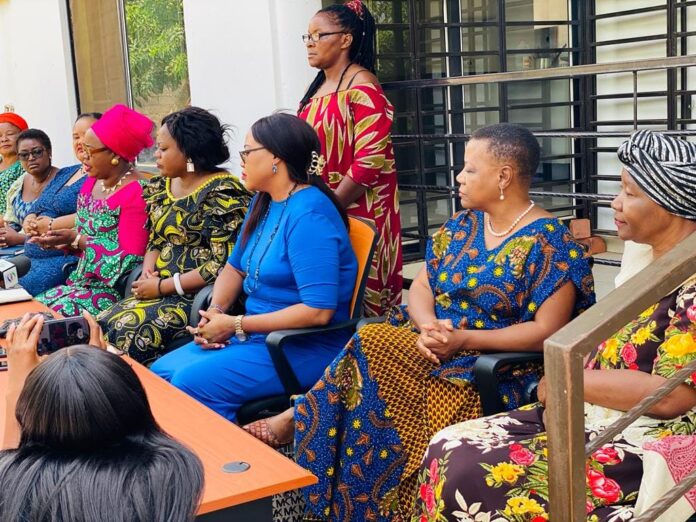The Need for a New Women’s Movement: Lipstick Women and the Dissatisfaction with NGOCC
By Dr Mwelwa
In a recent press briefing, women from various political backgrounds came together to voice their concerns about the National Women’s Lobbying Group (NGOCC), claiming that it has lost its original purpose and become an organization catering solely to women in positions of power and privilege. These women argue that NGOCC has abandoned its grassroots origins and transformed into a platform for “lipstick women,” the elite who are disconnected from the realities faced by ordinary women.
Their grievances stem from a recent incident involving the NGOCC Chairperson, who expressed solidarity with the Speaker of the National Assembly, Ms. Nelly Mutti, after she faced a motion of impeachment brought by opposition MPs. Prior to the scheduled vote on the motion, the MPs were abruptly suspended, raising concerns among stakeholders and even accusations against Mutti for breaching the constitution.
NGOCC’s show of support for Mutti without consulting its members has caused controversy. Critics argue that the chairperson’s actions undermine the organization’s credibility and legitimacy, as her decision seemingly disregarded the collective voice of the women NGOCC claims to represent.
Prominent women who participated in the press briefing, including President Edith Nawakwi of the Forum for Democracy and Development (FDD), President Saboi Imboela of the National Democratic Congress (NDC), President Chishala Kateka of the New Heritage Party, and Honorable Given Katuta Mwelwa, a Member of Parliament from the Chienge Constituency, highlighted the need for a new women’s movement that addresses the concerns of all women, regardless of political background or social status.
These women argue that the time has come for a fresh movement that prioritizes grassroots empowerment, inclusivity, and genuine representation. They envision an organization that incorporates the voices of everyday women, rather than focusing exclusively on the elites and those in positions of power.
The call for a new women’s movement stems from the belief that NGOs like NGOCC have lost their way and no longer effectively advocate for women’s rights. The current system, they argue, perpetuates a cycle of exclusion and marginalization, where the concerns of ordinary women are overshadowed by the interests of a few privileged individuals.
To address this, the proposed movement would prioritize the restoration of grassroots engagement and the amplification of women’s voices across all sectors of society. It would strive to bridge the disconnect between women in power and those they claim to represent, ensuring that decisions are made collectively and reflect the diverse needs and aspirations of women from all walks of life.
Critics may argue that the existence of multiple women’s rights organizations already addresses the concerns raised by these women. However, they contend that a new movement is necessary to revitalize the fight for gender equality and redirect the focus back to the women most marginalized and affected by deeply rooted inequalities.
In conclusion, the press briefing held by influential women from various political backgrounds shed light on the need for a new women’s movement that genuinely represents grassroots women and addresses their concerns. The current state of affairs within NGOCC and other similar organizations highlight the urgency for change. This proposed movement would strive to bridge the gap between women in power and ordinary women, working towards a society where every woman’s voice is heard and gender equality is truly achieved.

Except for Chishala Kateka, none of the other women are influencers on our local political arena. People should stop generalising on the basis of women who add no value to our political scene. Was Saboi democratically elected to hold the position she has? When did Edith last hold elections in “her” party? And the numerous scandals she has bern involved surrounding trying to fault HH by telling lies to the nation? If you listen to or watch live parliament debates then you know how empty/shallow Given katuta’s debates have been; almost embarrassing. Whats Given’s level of education? When NGOCC went to show solidarity to Hon. Mutti they represented the enlightened women who have a duty to advocate for civil debates and conduct in parliament in line with its Standing orders. I dont know how Chishala found herself with this lot of women without a clear understanding of parliamentary standing orders in spite of having been members at some point for Edith and Given.Those hooligan PF and pseudo pF MPs were set to demean Nellie
and second deputy speaker Moyo from the time they were appointed. You will recal how Saboi was on a hill top shouting that the first lady Mutinta had not formed an NGO like it was a statutory requirement! Edith lost the case where she trued to incriminate HH in former B employees case, in privatization and in the Hatembo kidnapping. She is lucky HH cannot enforce execution of judgement in his libel case against her which he won because he is now president. I hope he can still do it in 2031 after leaving office. Useless bunch of women this is, in spite of their education some of them. Muzikhalako na integrity bane.
The are all holves trying to pretend to represent women. 99% of them are from opposition parties some of them without membership and others are media politicians with no representation. Go ahead and form whatever you want to form and compete with the existing societies.